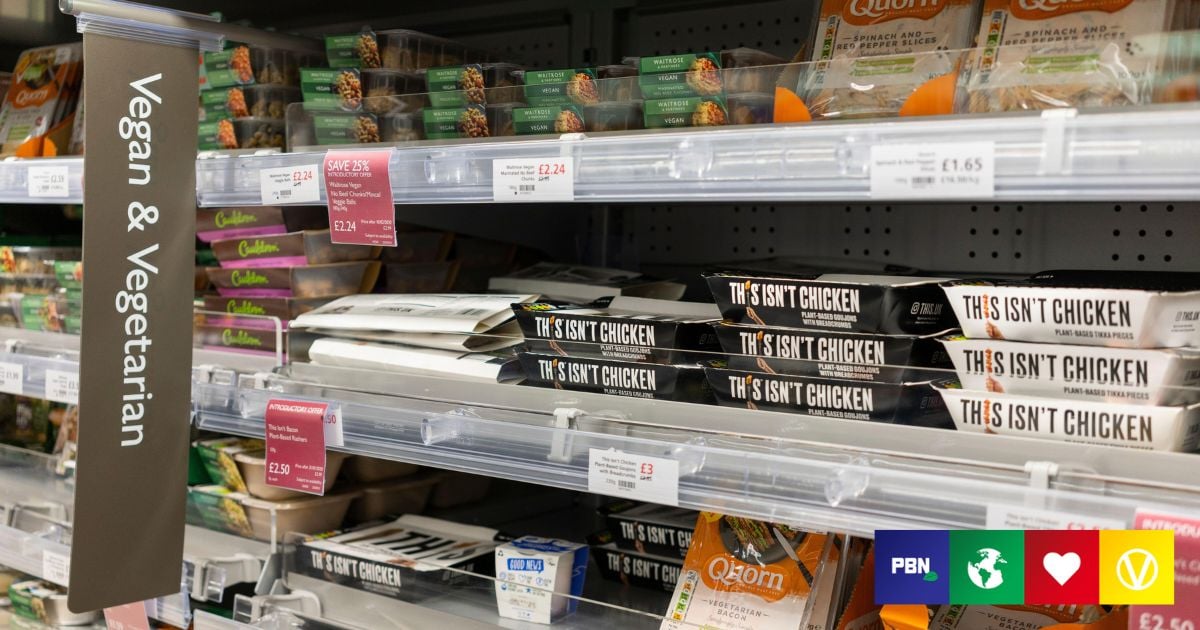The sharp rise in plant-based food sales in the UK did not result in a similar decline in meat sales, according to a new study.
Researchers at the University of Surrey observed UK supermarket sales during Veganuary 2021. They found that average weekly plant-based food sales grew by 57 percent. There was, however, no reciprocal reduction in meat.
“Our study suggests that while retailer-led campaigns are driving increased sales of plant-based products, we are yet to see large-scale meat replacement, which is key to driving progress toward healthy diets and sustainable,” said Joanna Trewern, lead author of the study. to study.
Trewern also argued that retailers “have an important role to play in enabling the adoption of healthier and more sustainable consumer diets.”
He added: “It’s great to see them take action, but more is needed to reduce our reliance on meat and dairy.”
The rise of plant-based products
Plant-based food sales soared the most in big box stores and low-income areas, according to the report. This, the researchers say, indicates that retailers are making vegan and vegetarian products more affordable.
Several discount supermarkets have been offering their own range of cheap plant-based products. Aldi and Lidl are key examples, with the former’s Plant Kitchen range having particular success. In 2021, Aldi saw a 250 percent increase in sales of its vegan range compared to the previous year.
The plant-based food industry was valued at a staggering $29.4 billion in 2020. And it’s forecast to grow to more than $162 billion by 2030. It is believed to account for 7.7 percent of the global protein market at that time.
Flexitarians drive the market
According to a report published in 2021, plant-based food companies like Oatly, Beyond Meat, and Impossible Foods are driving the change. But non-vegan companies like Kellogs and Nestlé have also gotten in on the action, expanding their own plant-based ranges in recent months.
The growth of plant-based foods is due in part to the rise of veganism. But it can also be attributed to the large number of people who describe themselves as “flexitarians”.
Flexitarianism generally includes those who mostly avoid eating meat, but are not entirely vegan or vegetarian. It is thought that around 16 percent of UK consumers consider themselves flexitarian. This is compared to six percent who are vegetarian and four percent who are vegan.
Why are people giving up meat?
Many people stop eating meat for reasons of animal cruelty. But a growing number are also doing so due to environmental concerns.
Animal agriculture is responsible for at least 14.5 percent of greenhouse gas emissions. It is also one of the main causes of deforestation, biodiversity loss and resource depletion.
The National Food Strategy recommended a minimum 30 percent reduction in meat consumption to support the UK’s net zero commitment. However, many experts have proposed more drastic cuts.
A 2018 An Oxford University study, for example, said beef consumption must be reduced by 90 percent in the Western world to avoid climate collapse.
“For there to be any chance of meeting the UK climate change targets, government, food businesses, civil society, scientists and health professionals must urgently work together to put in place action plans and policies that can generate rapid and sustained change,” Trewern said.
!function(f,b,e,v,n,t,s)
{if(f.fbq)return;n=f.fbq=function(){n.callMethod?
n.callMethod.apply(n,arguments):n.queue.push(arguments)};
if(!f._fbq)f._fbq=n;n.push=n;n.loaded=!0;n.version=’2.0′;
n.queue=[];t=b.createElement(e);t.async=!0;
t.src=v;s=b.getElementsByTagName(e)[0];
s.parentNode.insertBefore(t,s)}(window, document,’script’,
‘https://connect.facebook.net/en_US/fbevents.js’);
fbq(‘init’, ‘746177258902855’);
fbq(‘track’, ‘PageView’);
